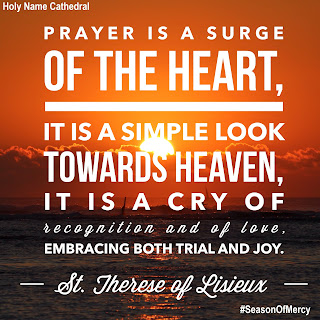“Remember those who are in prison, as though you were in prison with them; those who are being tortured, as though you yourselves were being tortured.” Hebrews 13:3
”When I was in prison, and you visited me.” Matthew 25:36
At first glance, when I reflected on the Corporal and Spiritual Works of Mercy, I found it challenging to connect with Ransom the Captive (aka, Visit the Imprisoned). It appeared to me to be the most challenging of the Works of Mercy to identify with and difficult to put into practice. To fully embrace this Work of Mercy, it calls for us to separate ourselves from the labels and stereotypes that are cast on inmates – individuals who commit crimes against society and are imprisoned. Yet, as Christians we recognize that those in prison are human beings who have the same desire to be treated with dignity, to have their spiritual and physical needs addressed and who wish to be supported in their desire to change, to rebuild their lives.
Ransom the Captive shines a strong light into the depths of our hearts so that we may see whether feelings of fear and judgment are hidden there. It challenges us to work to be merciful toward others who make mistakes.
As I read more and more about this Work of Mercy and gained a better understanding of how Ransom the Captive is put into practice, I came to realize that there are many faith based organizations- Christian, Muslim, and Jewish - that minister to those in prison.
Shortly after his election as the new pope, Pope Francis chose to visit a prison in Rome and celebrate Holy Thursday Mass with the inmates there. Through this selfless act, the Holy Father reminded us that Jesus himself had been arrested and imprisoned on the night before he died. He told the inmates that Jesus loves them without limit. He reminded them that he never tires of loving or forgiving anyone.
His example reminded us that those confined to prison deserve the opportunity to hear the Word of God and find the truth of the message of Christ.
One avenue to put Ransom the Captive into practice is to work as a volunteer in a prison ministry. One of the most well-known prison ministries – Kolbe House at Assumption Parish– is the Catholic jail ministry of the Archdiocese of Chicago. Their calling is ‘to befriend and accompany detainees. To listen to one another’s stories, reconnect with each other, God and community, pray together, support one another, believing in the capacity to become whole and find love, joy and peace in the world.’
Kolbe House offers several opportunities for volunteers to help prison populations including one-to-one visits and pastoral counseling. They work with family members, provide emergency services to the incarcerated, and their families. You can learn more about Kolbe House by visiting their web site at: www.kolbehouseministry.org.
Yet, one can see that there are many dimensions to this Work of Mercy that extend beyond its application to populations imprisoned. I came to recognize that being a captive can apply to individuals with addictions, individuals living in abusive situations, and victims of human trafficking. Many of us can relate to individuals in these circumstances who we encounter in our daily lives. We can ransom them by showing our mercy with gifts of ourselves – being present, listening and showing empathy, encouraging and supporting their spiritual needs.
And, as I reflect on ransoming captives, questions come forward that apply to my personal experiences:
- Have I ever stopped to think what it takes to be merciful toward others mistakes?
- Do I know how to forgive and give second chances to those who are close to me?
I encourage others to reflect on their personal experiences within the context of this rich Work of Mercy - Ransom the Captive:
Is there a captive in your life? How can you help him or her to get free?
Submitted by Ken Henriksen, vice chair of the Faith Formation Commission and member of the Extraordinary Ministers of the Eucharist and Lector Ministry. He has been a parishioner at Holy Name Cathedral since 1997.
Share your thoughts below or on social media, tagging Holy Name Cathedral and using #SeasonOfMercy.




































